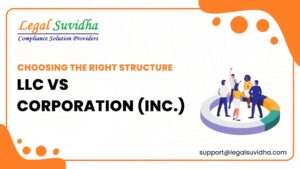
Essential Business Licenses for E-Commerce Startups in India
Operating an online store comes with numerous benefits—but also regulatory obligations. Securing the right licenses
The Phase II investigation process may include the installation of monitoring wells to collect groundwater samples and the excavation of soil to collect soil samples. The samples are then analyzed in a laboratory to determine the types and levels of contaminants present.
The information obtained from the investigation is used to develop a remediation plan that outlines the necessary measures to clean up the contamination and mitigate the risks to human health and the environment. The remediation plan may involve excavation and removal of contaminated soil, installation of groundwater treatment systems, or other methods depending on the nature and extent of contamination.
Overall, Phase II Soil and Groundwater Investigations play a critical role in identifying and evaluating the risks posed by environmental contamination and developing effective remediation strategies to protect human health and the environment.
| Identifying the Extent of Contamination | Phase II investigations provide a detailed understanding of the extent and nature of contamination in the soil and groundwater. This information is essential in developing an effective remediation plan and ensuring that all contaminated areas are identified and addressed |
| Assessing the Risks to Human Health and the Environment | Phase II investigations evaluate the potential risks to human health and the environment posed by the contamination. This information is used to develop appropriate mitigation measures and protect the health and safety of the community and environment |
| Compliance with Environmental Regulations | Phase II investigations are often required by environmental regulations to ensure compliance with applicable standards and guidelines. Completing these investigations and following through with remediation actions can help avoid potential legal and financial liabilities |
| Cost Savings | Phase II investigations can help identify the most cost-effective remediation solutions, reducing overall costs associated with cleanup efforts. Additionally, identifying contamination early on can help avoid costly cleanup efforts in the future |
| Improved Community Relations | Phase II investigations and associated cleanup efforts demonstrate a commitment to environmental responsibility and can improve community relations. Communities often appreciate proactive steps to address environmental concerns, which can lead to improved trust and goodwill between the industry and the community. |
The Phase II Soil and Groundwater Investigations typically involves the following steps:
Step 1: Site Characterization: The first step in the Phase II investigation is site characterization, which involves collecting information about the site’s history, geology, hydrogeology, and other relevant information. This information helps determine where and how to sample soil and groundwater.
Step 2: Sampling: Soil and groundwater samples are collected from locations determined in the site characterization phase. The number and location of samples depend on the site’s size, the potential sources of contamination, and the regulatory requirements.
Step 3: Laboratory Analysis: The collected soil and groundwater samples are analyzed in a laboratory to identify the types and levels of contaminants present. The results are compared to regulatory guidelines to determine if the site requires remediation.
Step 4: Risk Assessment: The risk assessment is conducted to evaluate the potential risks to human health and the environment. The results of the laboratory analysis are used to determine the level of risk posed by the contamination and whether further remediation is necessary.
Step 5: Remediation Planning: Based on the results of the risk assessment, a remediation plan is developed. The remediation plan outlines the necessary measures to clean up the contamination and mitigate the risks to human health and the environment. The plan may involve excavation and removal of contaminated soil, installation of groundwater treatment systems, or other methods depending on the nature and extent of contamination.
Step 6: Implementation of Remediation: Once the remediation plan is approved, the actual cleanup process begins. The cleanup process can take several months or even years, depending on the extent of contamination and the remediation method used.
Step 7: Monitoring and Verification: After the cleanup process is complete, the site is monitored to ensure that the remediation was successful. The site is regularly monitored to ensure that the contamination has not returned, and the remediation objectives have been met.
Overall, the Phase II Soil and Groundwater Investigations require a systematic and thorough approach to identify and evaluate the risks posed by environmental contamination and develop effective remediation strategies to protect human health and the environment.
1.Phase I Environmental Site Assessment Report
2.Sampling and Analysis Plan (SAP)
3.Health and Safety Plan (HASP)
4.Chain of custody forms for sample collection
5.Laboratory analytical results
6.Risk Assessment Report
7.Remediation Plan
8.Approval from regulatory authorities for the remediation plan
9.Implementation and monitoring plan
10.Ongoing monitoring reports
Fill out the application form & other details.
Make the payment through online mode.
We will process your application.
A mail will be send on completion.

We provide free of cost consultation and legal advice to our clients.

All our services are online no need you to travel from your place to get our services.


We are a team of more than 15+ professionals with 11 years of experience.

There are no hidden & extra charges* other than the quote/invoice we provide.

We aim that all our customers are fully satisfied with our services.

We value your time and we promise all our services are delivered on time.
In this Journey of the past 10+ years, we had gained the trust of many startups, businesses, and professionals in India and stand with a 4.9/5 rating in google reviews.
![Google]()
![Dr Mohamed Yasir (Life Coach / Career Guide)]() Dr Mohamed Yasir (Life Coach / Career Guide)10/09/2024
Dr Mohamed Yasir (Life Coach / Career Guide)10/09/2024![Google]() Great experience with smooth process during the startup india registration Excellent coordination and teamwork with effective implementation in very limited time
Great experience with smooth process during the startup india registration Excellent coordination and teamwork with effective implementation in very limited time![Google]()
![Pravin Singhania]() Pravin Singhania26/06/2024
Pravin Singhania26/06/2024![Google]() Sound expertise, good coordination, efficient and timely execution.
Sound expertise, good coordination, efficient and timely execution.![Google]()
![Sasikanth Vaddadi]() Sasikanth Vaddadi25/06/2024
Sasikanth Vaddadi25/06/2024![Google]() Good service and very helpful
Good service and very helpful![Google]()
![Vijay Agrawal]() Vijay Agrawal18/06/2024
Vijay Agrawal18/06/2024![Google]() We had a great experience working with the LegalSuvidha team - we have used them for both our Pvt Ltd and LLP formation and their team has been very proactive, knowledgeable, prompt and helpful. They helped with all DSCs as well and couriered them to us. Very professional and thorough. We also got our Startup India , MSME registrations through them promptly. Overall highly recommended. Special callout to Nidhi, Saloni, Anjalin, Shreya and Priyanka for promptly helping us throughout the process.
We had a great experience working with the LegalSuvidha team - we have used them for both our Pvt Ltd and LLP formation and their team has been very proactive, knowledgeable, prompt and helpful. They helped with all DSCs as well and couriered them to us. Very professional and thorough. We also got our Startup India , MSME registrations through them promptly. Overall highly recommended. Special callout to Nidhi, Saloni, Anjalin, Shreya and Priyanka for promptly helping us throughout the process.![Google]()
![Poornima Singh]() Poornima Singh05/06/2024
Poornima Singh05/06/2024![Google]() I am writing to thank you for the quality of service provided by your company. We sincerely appreciate your efficient, gracious customer service, the level of detail and accountability you have demonstrated and the way you conduct business as a whole. A special Thanks to Ms Saloni for her great help throughout.
I am writing to thank you for the quality of service provided by your company. We sincerely appreciate your efficient, gracious customer service, the level of detail and accountability you have demonstrated and the way you conduct business as a whole. A special Thanks to Ms Saloni for her great help throughout.![Google]()
![Abhishek Chaturvedi]() Abhishek Chaturvedi01/05/2024
Abhishek Chaturvedi01/05/2024![Google]() Excellent service and experienceGoogle rating score: 4.9 of 5, based on 427 reviews
Excellent service and experienceGoogle rating score: 4.9 of 5, based on 427 reviews
Explore more of our blogs to have better clarity and understanding
of the latest corporate & business updates.

Operating an online store comes with numerous benefits—but also regulatory obligations. Securing the right licenses

Selecting the optimal legal form is a critical decision when launching your U.S. venture. Both

Expanding your U.S.-based business into India unlocks access to a vast consumer market, a skilled

A private limited company is a separate legal entity with perpetual succession and limited liability

Want to Setup your business in India? Connect with the best Online Registration, Licenses and Return filing solution providers for business across India. Since 2007, LegalSuvidha has been a one-stop shop for all startups or entrepreneurs looking for a chartered accountant, company secretary or lawyer. We have been ensuring Startups and SMEs are fully compliant with India’s legal system. Over the past 15 years, the depth of our offerings has increased and that too at affordable prices and customer satisfaction has made our standing different and we are giving a tough competition to other online facilitators of legal services in India. We have the best team for Company incorporation, Trademark Registration, Auditing, Advisory and Tax Filing for large, medium, small businesses and Startups in India.
Most of the budding entrepreneurs are in dilemma about what kind of entity to register when they start their business. Should it be a private limited company, limited liability partnership, partnership firm, one person company or a sole proprietorship? Each of these has its advantages and disadvantages. The type of entity should be chosen only after one round of consultation with our experts, as they will be in a better position to guide on the same. For example, Registering as a private limited company would be a good fit for any venture that will look for funding at a later stage. You can contact Legalsuvidha for any type of registration and advice you need for your business transactions. We assure you of great professional service at a reasonable price. You can connect with us for a free check on the Company name availability.
The importance of intellectual property is very much but most of the businesses are not aware of the same. We at LegalSuvidha simplify the process for you to register a Trademark for your brand, to get copyright for your artistic, creative ability and will also help you in patenting the process after a proper patent search patents which will ensure that you have sole rights to your creation, be it your brand, your designs or your inventions. At Legalsuvidha, we are very well equipped to handle all your IP requirements. We facilitate trademark applications in just two days, copyright registration for all your software, pictures, audio, and video content, and can connect you to patent attorneys to conduct a patent search and file your patent applications.
To do any business in India, you need a license for almost everything. Started a manufacturing business? You need a GST Registration and a Trade License. For a food business, you need an FSSAI license. In case you have employees, You need a Professional Tax registration and Shops & Establishments Act Registration. If that’s not enough, you also need to file GST Returns and Professional Tax Returns.
There is a lot of importance of legal documentation when you start your business, whether with your Investors, partners/co-directors, employees and any vendors you deal with. By getting a lawyer to draft contracts or agreements with new vendors, employees, and investors, you’re ensuring that you have all the downsides covered. At LegalSuvidha, we connect you to lawyers who will deliver complex documents, from shareholders’ agreements and founders’ agreements to terms of service/privacy policy and non-disclosure agreements, at a reasonable cost in a few days.
It’s not enough to have started a private limited company or an LLP. You need to comply with all the requirements of the Ministry of Corporate Affairs, Central Board of Indirect taxes and Central Board of direct taxes once you register your business. You need to inform them of every relevant change you make, whether it is adding a director, removing a partner or increasing authorized share capital. You also need to file annual returns and maintain your accounts. In the case of a private limited company, you even need them audited. At LegalSuvidha, we facilitate all these services completely online. This means you can engage a professional on retainer for the year and we’ll ensure that all the formalities are completed for you while you focus on your business.
We are Authorized e-return Intermediaries and have recently launched our own ITR filing platform, this will help the salaried employees and businesses to get their ITR filed within the time and at a reasonable price. Through the use of automation, the system is highly effective and will help in filing ITR in up to 10 minutes for Salaried employees. We have on-boarded the best Chartered Accountants who will provide consultation for both Salaried employees and Businesses to file proper taxes to the government of India. This will help in avoiding legal notices in the future and will also help in getting the returns processed at the earliest. We are the first in the market to launch the ITR filing facility for FY 2018-19.
Legal Suvidha © 2013-2024. All Rights Reserved.